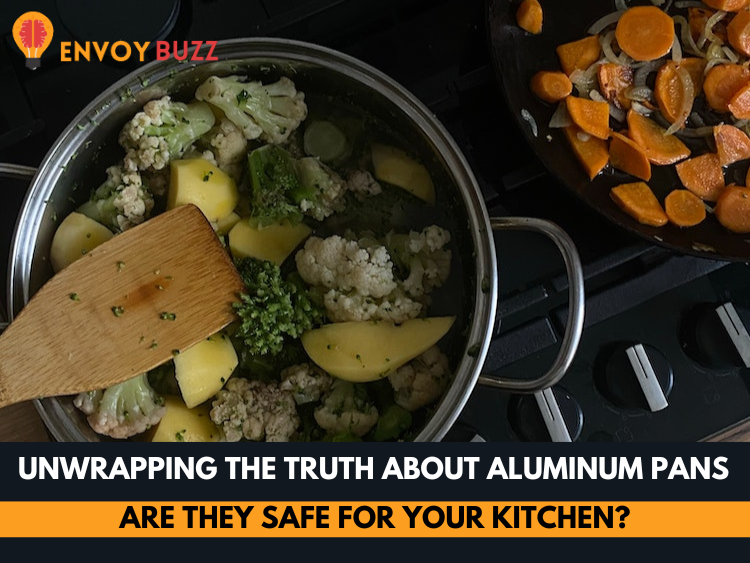Hey there, fellow kitchen enthusiasts! If you’re anything like me, you’ve probably come across aluminum pans quite frequently in your culinary journey. They are ubiquitous, affordable, and touted for their excellent heat conductivity. But hold on a second! Are aluminum pans as safe as they are convenient? Let’s dive deep into the world of cookware and explore the pros and cons of aluminum pans.
Why Aluminum Pans Are the Go-To Choice
Before we unravel the safety concerns, let’s talk about why aluminum pans are such a popular choice on the market.
- Stellar Heat Conductivity One of the prime reasons aluminum pans are a hit in the kitchen is their remarkable heat conductivity. This means they heat up quickly and distribute heat evenly, ensuring your food cooks uniformly.
- Lightweight and Affordable Aluminum pans are a budget-friendly option that won’t weigh you down. Their lightweight design makes them easy to handle, even when they’re loaded with your culinary creations.
- Versatility Galore From sautéing vegetables to searing meats, aluminum pans are versatile enough to handle a wide range of cooking techniques. They also come in various shapes and sizes, catering to different cooking needs.
- Low Maintenance Cleaning up after cooking can be a hassle, but aluminum pans make life easier. They’re typically non-stick or have a simple-to-maintain surface, making cleanup a breeze.

Now that we’ve covered why aluminum pans are so prevalent, let’s shift our focus to the burning question: Are they safe for everyday use?
Why Aluminum Pans Might Not Be Your Safest Bet
- Aluminum Leaching One of the most significant concerns with aluminum pans is the potential for aluminum to leach into your food, especially when cooking acidic or alkaline ingredients. This can alter the taste of your dishes and, more importantly, expose you to higher aluminum levels.
- Reactive with Certain Foods Aluminum pans can react with acidic or alkaline foods, leading to changes in taste and color. Tomato-based sauces and dishes with citrus are notorious for this.
- Risk of Overheating Aluminum pans are known for their excellent heat conductivity, but this can also be a drawback. They heat up quickly and can become scorching hot, making them a potential hazard in the kitchen if not handled with care.
- Durability Concerns While aluminum pans are lightweight and affordable, they are more susceptible to dents, scratches, and warping compared to other materials like stainless steel or cast iron.
- Not Ideal for Long Simmering Aluminum pans are not the best choice for long, slow cooking or simmering. Consistent exposure to high heat might lead to issues like warping and a shorter lifespan.

Making Aluminum Pans Safer for Your Kitchen
Now, before you start tossing your aluminum pans out the window, there are some steps you can take to mitigate the potential risks:
- Use Proper Utensils Avoid using metal utensils that can scratch the surface of your aluminum pans. Opt for wooden or silicone tools instead.
- Choose Anodized Aluminum Anodized aluminum pans have a protective layer that makes them less reactive to food and more durable. They are a safer option compared to regular aluminum pans.
- Hand Wash Carefully To prevent damage, hand wash your aluminum pans with a mild detergent. Avoid using abrasive scrubbers or putting them in the dishwasher.
- Cook with Caution Be mindful of what you cook in aluminum pans. Save them for dishes that won’t react with the material, and avoid extended cooking times at very high heat.
In Conclusion
Aluminum pans have their pros and cons. While they offer convenience and affordability, their safety concerns can’t be overlooked. If you choose to continue using aluminum pans, it’s essential to be aware of the potential risks and take appropriate precautions in your kitchen. Ultimately, the choice of cookware is a personal one, and knowing the facts empowers you to make the right decision for your culinary adventures. Happy cooking! 🍳👩🍳👨🍳
For more blogs, please visit Envoybuzz

